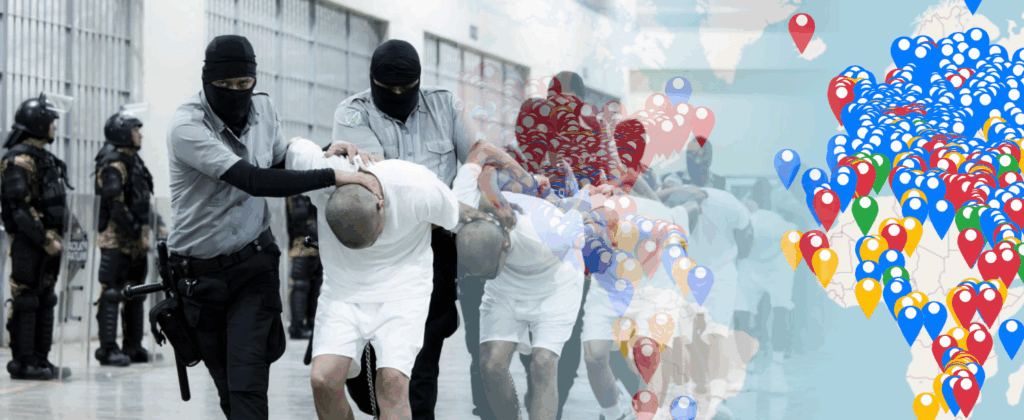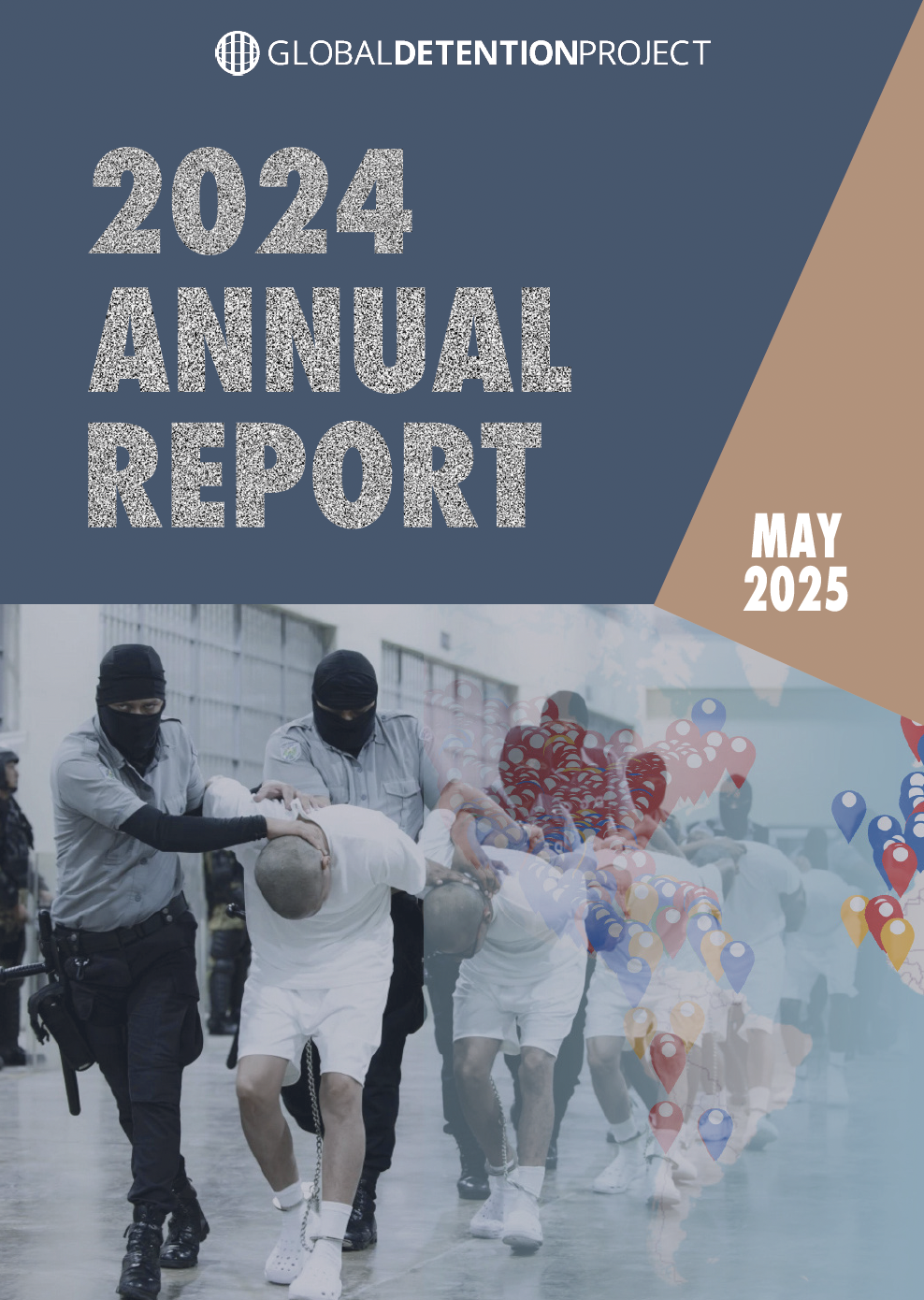
Letter from the Executive Director
Since taking office in January, U.S. President Donald Trump has revealed a bitter truth about immigration detention: at its heart it is an arbitrary power, one which government officials may describe as an instrument of immigration policy, but which is defined and empowered by its underlying purpose – the permanent removal of people from a society.
To properly understand immigration detention, it is useful to compare it to its penal counterpart, criminal imprisonment. Prison is used to punish people, but it is also intended — at least nominally — to teach lessons aimed at preparing people to re-enter public life. Immigration detention, on the other hand, has no such reform agenda (real or imagined). Why? Because most people who enter it are not meant to return … ever.
For this very reason, immigration detention is an inherently slippery slope that is ripe for abuse and seemingly impervious to reform.
As a group of people whose voices are never heard, immigration detainees are an ideal political tool. When the U.S. Department of Homeland Security (DHS) ignored judicial orders and sent a group of non-citizens to El Salvador’s notorious “Terrorism Confinement Center” (better known as “CECOT”), Donald Trump did more than “remove” those people: he shamed, dehumanised, and ultimately disappeared them using a power unconstrained by fundamental legal precepts like judicial review.
While much of the world was outraged by the images of mistreatment these detainees suffered upon arrival in El Salvador, key factions in the United States and elsewhere were triumphant. Salvadoran President Nayib Bukele’s mocking response on X to a U.S. judge’s order to return the detainees — “Oopsie … Too late” — pithily encapsulates the cruel and heartless moment facing vulnerable migrants, refugees, and asylum seekers nearly everywhere today.
Even as criticism and legal cases have mounted, Trump has remained undaunted, ramping up plans to send migrants and asylum seekers to the world’s most dangerous and lawless countries. As Trump’s stridently anti-immigrant lieutenant Stephen Miller has said, “We send planes to Iraq. We send planes to Yemen. We send planes to Haiti. We send planes to Angola. I mean, [Immigration and Customs Enforcement] is sending planes all over the world all the time.”
Back at home, Trump has wielded immigration detention to silence activists, threaten immigrant communities across the country, and spread fear amongst international students. He has called for 45 billion USD in new spending on privately operated detention centres, announced plans to deport up to one million migrants annually, and gutted key oversight mechanisms, including DHS’s Immigration Detention Ombudsman.
To be sure, the U.S. case is in many ways uniquely abhorrent, especially given that country’s current political context. However, one does not have to look hard to find other cases that demonstrate the tremendous challenges we face in reigning in this power. In last year’s Annual Report, for instance, we lauded the cases of both South Korea and Australia, where high courts had ruled against indefinite immigration detention. Since then, however, both countries have found ways circumvent these rulings, dashing the hopes of many people who remain indefinitely locked up.
Nor is the Trump administration alone in its efforts to send migrants and asylum seekers to detention centres beyond its borders — a controversial enforcement practice that Australia helped introduce to the world 25 years ago with its notorious, and now-aborted, “Pacific Solution.” Italy has been doing this since 2023, spending millions of Euros to send detainees to centres in Albania, while numerous other countries like the UK have sought to send asylum seekers to processing centres in places like Rwanda and elsewhere.
What we are witnessing today, although shocking and disheartening, should come as no surprise. At the GDP, we have long warned that immigration detention is a power that is inherently vulnerable to misuse and stubbornly resistant to reform, precisely because it is a form of imprisonment that is not subject to the same judicial checks as criminal procedures and because it involves a population that is exceptionally powerless.
We were reminded of this recently when Norway’s immigration detention Supervisory Board sent us their Annual Report, highlighting numerous reforms it has proposed partly inspired by the work of the GDP. In his introduction to the report, the Board’s chair Pål Morten Andreassen offered a quote from Fyodor Dostoevsky’s novel about life in a Siberian prison camp, “The House of the Dead,” in which he writes: “The degree of civilization in a society can be judged by entering its prisons.”
Andreassen noted that this quote equally applies to “how the state takes care of the people for whom it will soon no longer be responsible,” namely immigration detainees awaiting deportation. “Unlike prisoners, who serve a sentence in prison, the detainees will not be returned to Norwegian society,” writes Andreassen. “Soon they will be out of sight and out of mind for the authorities. In my view, this may make the immigration authorities less proactive and decisive when it comes to safeguarding the rights of detainees and rectifying unsustainable or reprehensible conditions.”
In a follow up note to the GDP, Andreassen emphasised the importance of the GDP’s work for detention monitors, writing: “The GDP’s solid and critical approach to examining the risks of undignified treatment associated with immigration detention is of great importance. They consistently highlight the various vulnerabilities that detainees face, advocating for reforms that prioritize human dignity and respect. This critical lens is vital in addressing the systemic issues prevalent in immigration detention systems.”
Viewing the migration and refugee landscape today, it is all too easy to despair. Which is why it is so important for us to take stock of the real impacts that we have made. As this Annual Report shows, the GDP continues to make an important difference across many countries and in numerous arenas, even if it may seem at times a quixotic or improbable struggle, like a Banksy graffiti of a child frisking a soldier. But these small victories are the lifeblood of change. We hope that you will continue to accompany us in this struggle to bear witness to the harms of immigration detention and to lay the foundations — brick by brick — of a better, more generous and empathetic future.
Michael Flynn (Executive Director)



